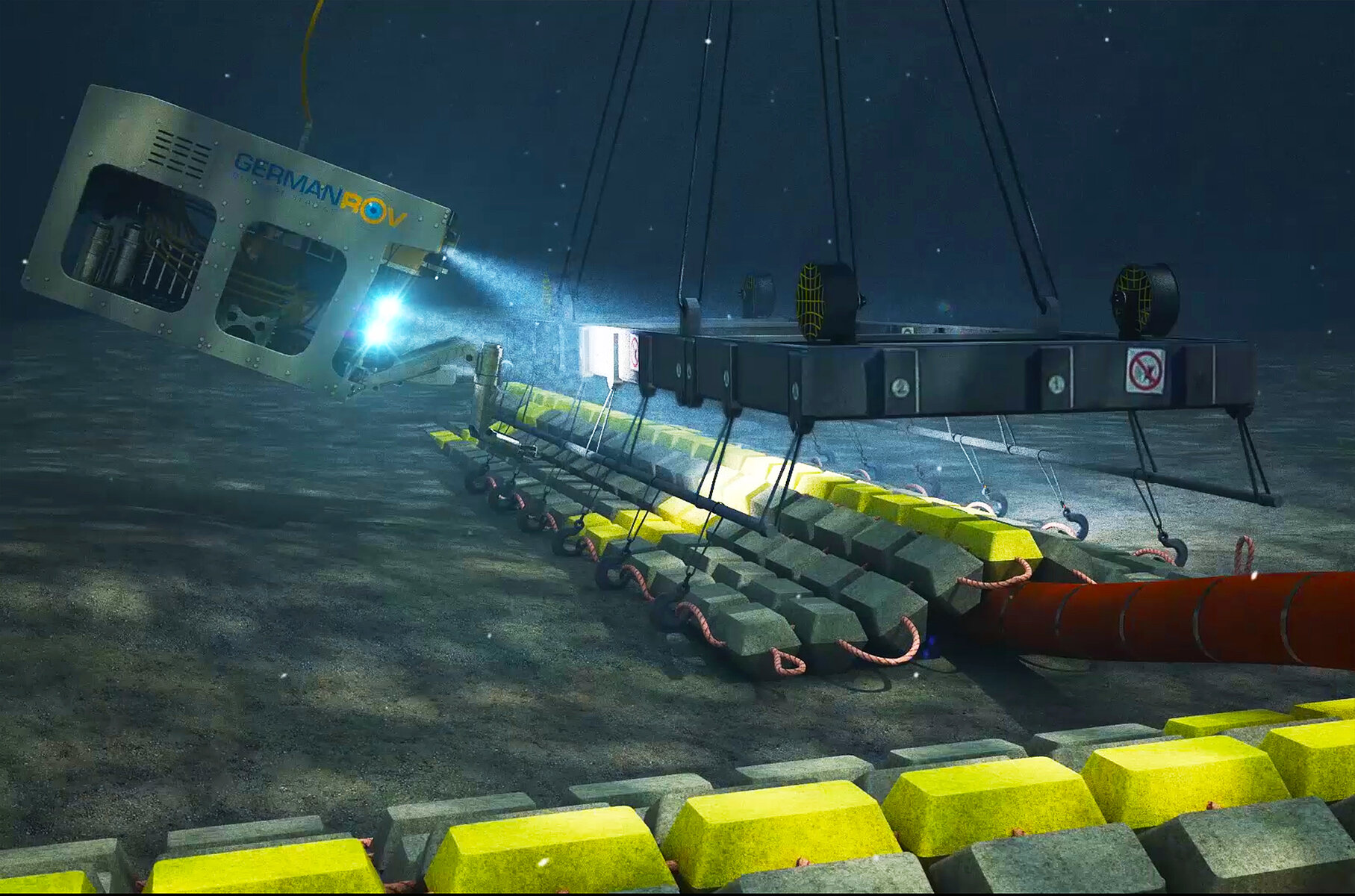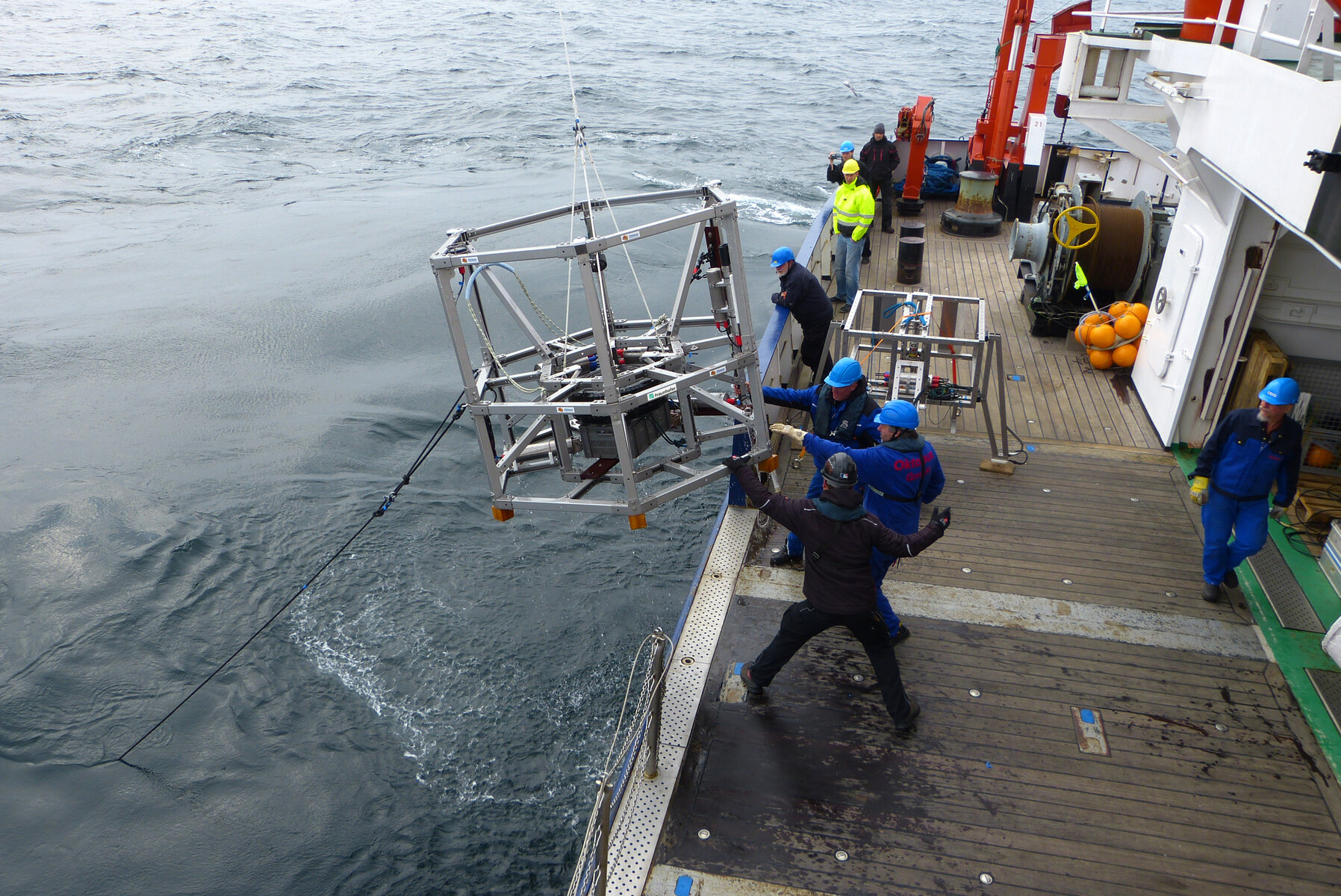The more the oceans are used, the more they come under threat, for example through overfishing and pollution. Only sustainability can guarantee that the oceans remain usable. They serve as transport routes, enable high-speed Internet via fiber optic cables laid on the seabed, supply food via aquacultures, and are increasingly used for industrial purposes in offshore wind farms and exploration platforms. Society, politics and the economy are dependent on the findings of marine research – only with the necessary knowledge can the oceans and seas be protected and used sustainably.
One research discipline alone quickly reaches its limits when it comes to developing ocean technology. In the Ocean Technology Campus, research institutions with experience across the entire spectrum of marine and underwater technology work together and make their knowledge available to industry: for new business models that combine economic efficiency with sustainability.
The Fraunhofer-Gesellschaft, based in Germany, is the world's leading organization for application-oriented research. With its focus on future-relevant key technologies and on the exploitation of results in business and industry, it plays a central role in the innovation process. It is a signpost and stimulus for innovative developments and scientific excellence.
The Fraunhofer-Gesellschaft's "Smart Ocean Technologies" research group develops forward-looking marine technologies and new solutions for using the oceans in a more compatible way. The underwater technology research group, which is unique in Europe, conducts research into complex system solutions for underwater applications. The spectrum ranges from autonomous underwater vehicles and unmanned navigation to systems engineering and visual computing, sensor technology, simulation and measurement technology, and the use of algae or aquaculture. The interdisciplinary research group combines the expertise of four Fraunhofer institutes and has already been working at the Ocean Technology Campus base camp since fall 2020.
https://www.igd.fraunhofer.de/projekte/smart-ocean-technologies
The IOW is a non-university research institution dedicated to interdisciplinary marine research in coastal and marginal seas. The main focus of its work is on research into the ecosystem of the Baltic Sea. The disciplines of physical oceanography, marine chemistry, biological oceanography and marine geology are represented in the four sections of the IOW.
The BSH is a higher federal authority in the portfolio of the Federal Ministry of Digital Affairs and Transport (BMDV). It is the public institution for sea-related tasks. This concerns tasks such as maritime security, the publication of official nautical charts and surveying tasks in the North Sea and Baltic Sea, as well as the prediction of tides, water levels and storm surges. In addition, the BSH is responsible for surveying ships, flag law, testing and approving navigation and radio equipment, and issuing certificates for seafarers. With reference to construction projects in the North and Baltic Seas, the BSH is responsible for spatial planning and for the inspection and approval of facilities for power generation (offshore wind turbines), cables or other installations within the federal government's area of responsibility.
Our primary working area is a very special sea: the Baltic Sea, the largest brackish water area on earth. Due to its low salinity, its marine fauna is species-poor, and interactions between the main species are simple. Fisheries are also diverse but simply structured. Small-scale coastal fisheries characterize the mostly structurally weak coastal regions of the littoral states. These characteristics make the Baltic Sea an ideal test area for new approaches to data collection and fisheries management.
The Chair of Marine Engineering was established on October 1, 1992. It emerged from the Chair of Fisheries Engineering, which was founded in 1968. Thus, the University of Rostock is one of the oldest teaching and research institutions in the field of marine engineering in Germany. Teaching is mainly focused on theoretical and experimental methods for the design of floating and moored offshore systems as well as unmanned underwater vehicles and systems. In its application-oriented basic research, the Chair of Marine Engineering concentrates primarily on the development, validation and application of theoretical and experimental methods for the reliable prediction of loads, movements and deformation of a wide variety of marine engineering structures. In connection with ensuring a guaranteed service life of underwater systems, experimental analyses of material aging of polymer materials under marine operating conditions are also part of the research portfolio.

